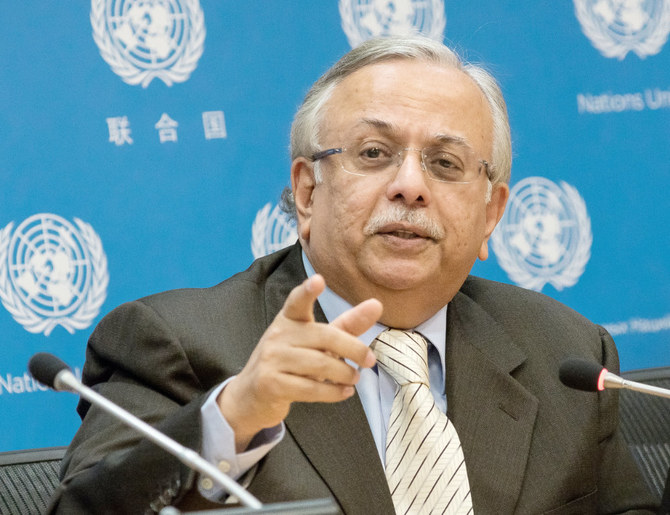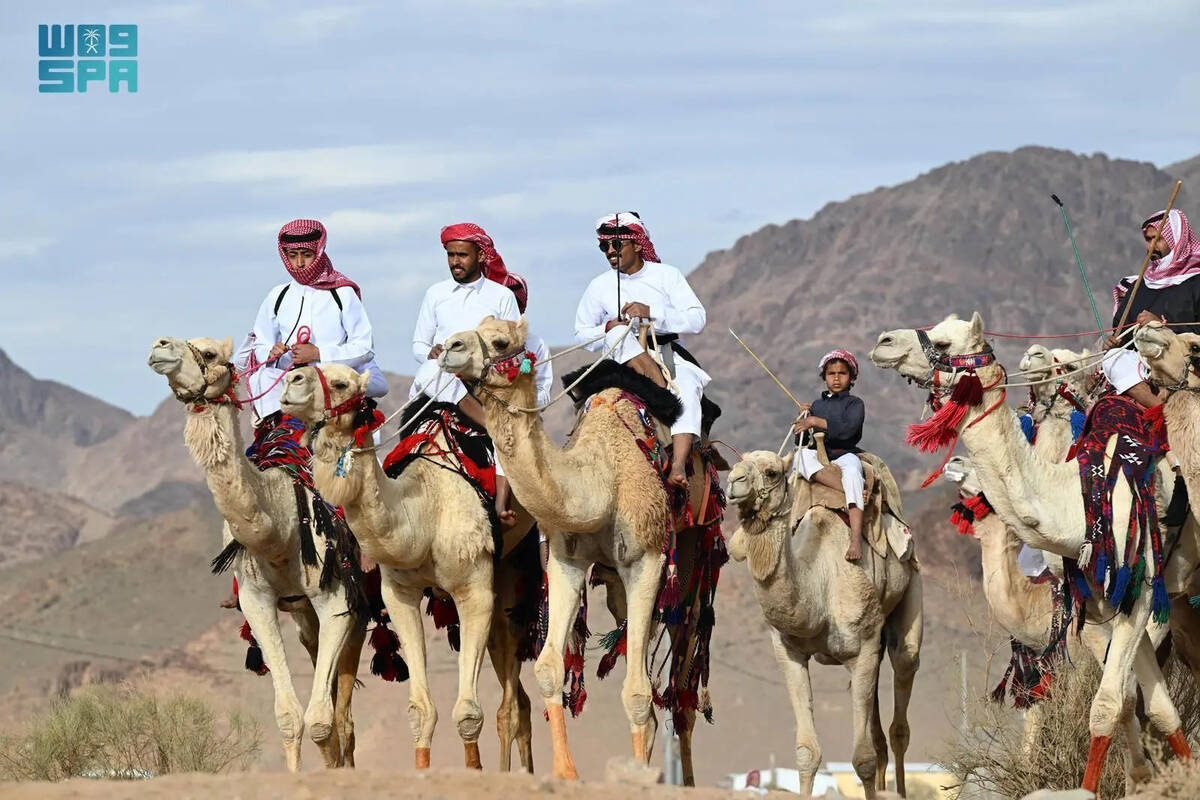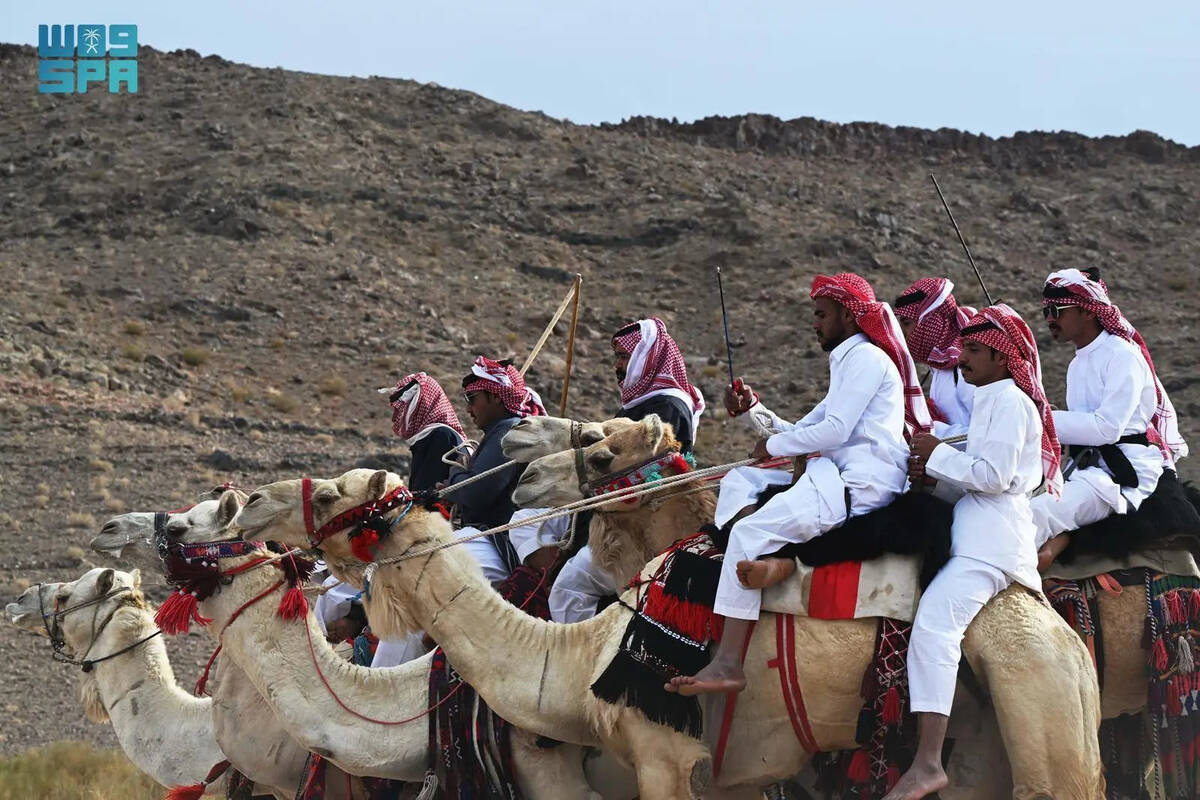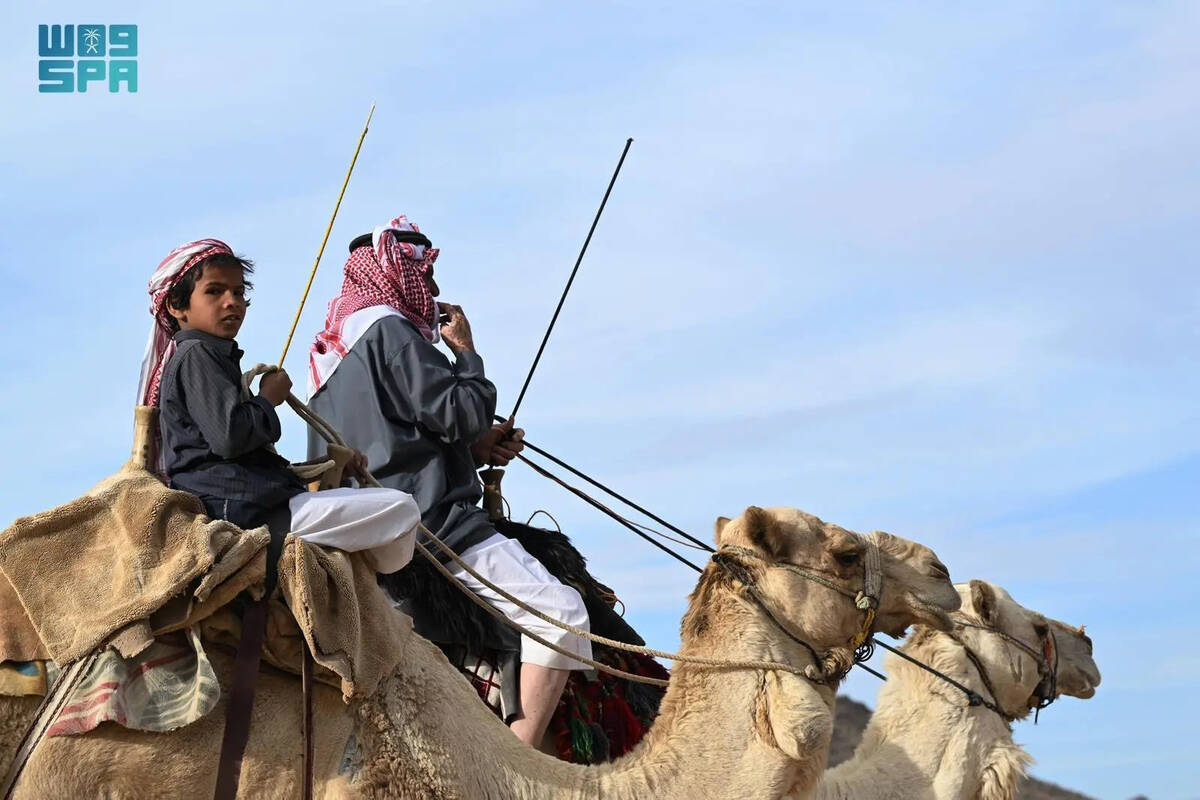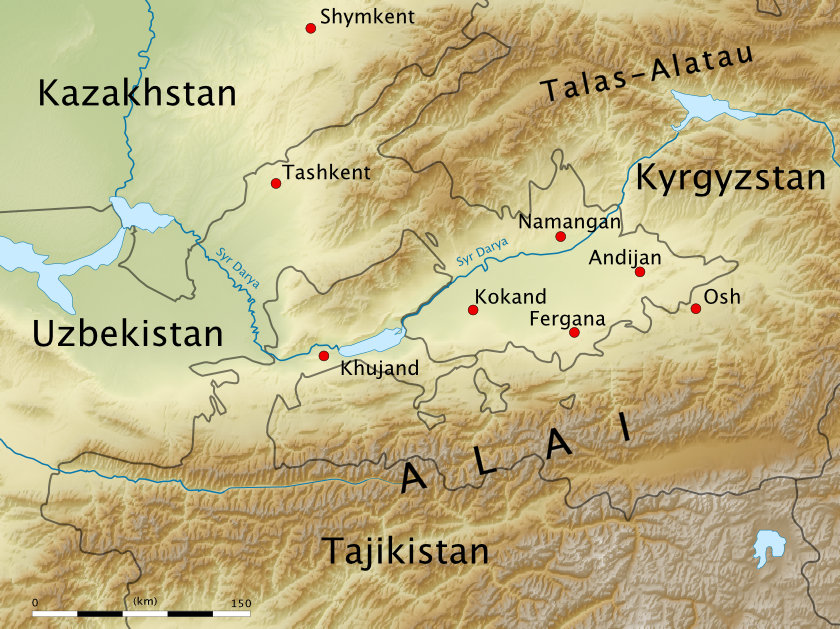NEW YORK: The anti-racism protests on the streets of New York outside could be heard as the indignant crowds called for nothing less than the end of systemic racism in their country.
From his office, Saudi permanent representative to the UN Abdallah Al-Mouallimi, who has lived in the US for many years, mused on the significance of American protests:
“Events in the United States are an indication of the vitality of American society,” he said.
“(Protests) show the strength of that society, its ability to mobilize in the face of crisis. It also shows some of the shortcomings in the American system with regard to racism and discrimination.
“But I know that the majority of Americans are peace-loving. They love the interaction of various ethnic backgrounds. And I hope that our friends in the US will be able to overcome the current difficulty they are now going through,” Al-Mouallimi said.
The conversation quickly turned to another country that has been in the headlines this week: Yemen.
“The situation in Yemen is catastrophic, both in terms of the humanitarian situation and in every (other) respect,” said Al-Mouallimi.
As the country continues to reel under what the UN has many times described as the world’s worst man-made humanitarian crisis, international organizations have made pleas for funding to shore up their operations in Yemen after 75 percent of the UN programs had to shut their doors or reduce operations because of the lack of funds.
Saudi Arabia answered the humanitarian call by organizing a pledging event, co-hosted by the UN, where participants included representatives from more than 125 member states.
$1.35 billion was pledged, falling short of the $2.5 billion that the organizations said they needed to keep their operations going.
Al-Mouallimi explained that the initial pledges, though about half of what had been sought, were normal for an event of this magnitude:
“International donors do not achieve more than 50 or 60 percent of the target because basically the target is there to be completed over a full year.
“We are still in the first half of the year. We still have some time. So the pledging conference achieving 50 or 60 percent is considered a success in many ways.
“The conference was a huge success for the United Nations and for the Kingdom of Saudi Arabia, for Saudi diplomacy.
“The fact that you can hold such a conference, with such wide participation, under the current circumstances, virtually, and with the economic clouds hanging in the air over the heads of the participants, and then come up with (actual) results: I think that is a major success,” Al-Mouallimi said.
The UN undersecretary general for humanitarian affairs, Mark Lowcock, who co-hosted the conference, was quick to urge donors to pay their pledges immediately, because “time is of the essence” for humanitarian organization to resume operations in Yemen: “When the pledges are paid literally means the difference between life and death for countless Yemenis,” Lowcock said.
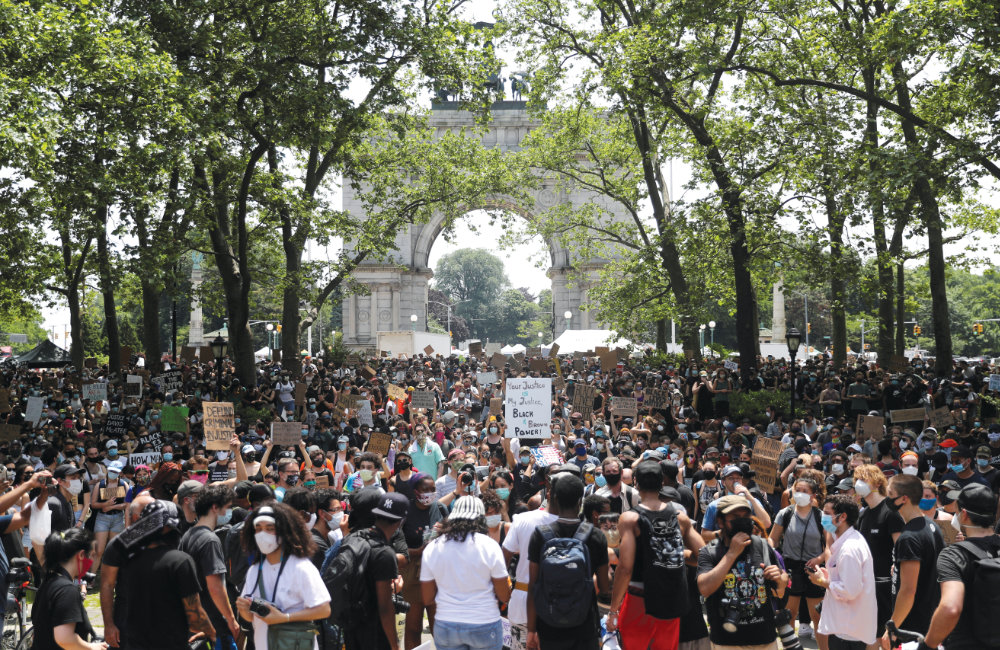
Demonstrators gather to protest against racial inequality in the aftermath of the death in Minneapolis police custody of George Floyd, in New York. (Reuters)
Al-Mouallimi said Saudi Arabia would continue to work on two tracks: The humanitarian track where “the follow-up to that conference will be the collection of the funds, the disbursement of these funds through the United Nations and our channels, and the actual implementation of projects to help the Yemeni people on the ground, including provisions of food and medicine.”
The second track is the political track: “The UN envoy continues to work his way through the various obstacles that are in his way but I believe that with the determination of the Yemeni people and all the parties that are supportive of Yemen we will be able to overcome these difficulties.”
Prince Faisal bin Farhan, the Saudi minister of foreign affairs, pointed to the main obstacle in the way of humanitarian work “due to the inhuman practices and violations by Iranian-backed Houthi militias…. blocking humanitarian aid, looting relief convoys and impeding access to all Yemeni lands.”
The international community has constantly been working to overcome such hurdles. Al-Mouallimi noted that “every time there is a difficulty the UN and the international community react by withholding the supply of this aid or freezing it for a certain period of time or redirecting it to other channels or our way, and this usually prompts (the Houthis) to reconsider their position and to allow the aid to pass through. It is a game they are trying to play to gain advantage, but one needs patience and a long-term view of the situation.
“The international community needs to continue to put pressure on the Houthis, both moral and political pressure, as well as on the ground. And that’s what we are doing with our partners in the Yemeni government.
“The Houthis will continue their obstructive behavior and we will continue to change or correct it.”
Apart from Yemen and the US protests, the coronavirus pandemic continues to haunt Al-Mouallimi, who seemed disappointed at the lack of cooperation among countries to fight off the virus.
“The international community should have shown more solidarity, more coordination, more commitment to working together and enhancing the role of the multinational organization such as the UN and its subsidiaries.”
He said that from the beginning Saudi Arabia “has assumed its leadership role. The Custodian of the Two Holy Mosques invited world leaders of the G20 to a virtual summit, the first of its kind, that was held couple months ago and, as a result of that summit, certain measures and steps were agreed and were taken to help combat the coronavirus.
“Subsequently, the Kingdom has announced numerous steps including a contribution of $500 million to various channels that is aimed at fighting the coronavirus, including $150 million that was earmarked for helping in the development of a vaccine and treatment and medications to help treat the disease.
“So the Kingdom has been taking a leading role in that respect. We have provided support to the WHO and we have also provided specific assistance to certain countries that are vulnerable, including Yemen and our Palestinian brothers and sisters, so that they can overcome the difficulties that are associated with this virus.”


